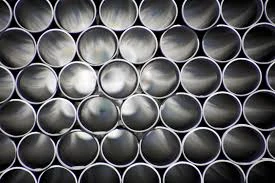
-
 Afrikaans
Afrikaans -
 Albanian
Albanian -
 Amharic
Amharic -
 Arabic
Arabic -
 Armenian
Armenian -
 Azerbaijani
Azerbaijani -
 Basque
Basque -
 Belarusian
Belarusian -
 Bengali
Bengali -
 Bosnian
Bosnian -
 Bulgarian
Bulgarian -
 Catalan
Catalan -
 Cebuano
Cebuano -
 China
China -
 China (Taiwan)
China (Taiwan) -
 Corsican
Corsican -
 Croatian
Croatian -
 Czech
Czech -
 Danish
Danish -
 Dutch
Dutch -
 English
English -
 Esperanto
Esperanto -
 Estonian
Estonian -
 Finnish
Finnish -
 French
French -
 Frisian
Frisian -
 Galician
Galician -
 Georgian
Georgian -
 German
German -
 Greek
Greek -
 Gujarati
Gujarati -
 Haitian Creole
Haitian Creole -
 hausa
hausa -
 hawaiian
hawaiian -
 Hebrew
Hebrew -
 Hindi
Hindi -
 Miao
Miao -
 Hungarian
Hungarian -
 Icelandic
Icelandic -
 igbo
igbo -
 Indonesian
Indonesian -
 irish
irish -
 Italian
Italian -
 Japanese
Japanese -
 Javanese
Javanese -
 Kannada
Kannada -
 kazakh
kazakh -
 Khmer
Khmer -
 Rwandese
Rwandese -
 Korean
Korean -
 Kurdish
Kurdish -
 Kyrgyz
Kyrgyz -
 Lao
Lao -
 Latin
Latin -
 Latvian
Latvian -
 Lithuanian
Lithuanian -
 Luxembourgish
Luxembourgish -
 Macedonian
Macedonian -
 Malgashi
Malgashi -
 Malay
Malay -
 Malayalam
Malayalam -
 Maltese
Maltese -
 Maori
Maori -
 Marathi
Marathi -
 Mongolian
Mongolian -
 Myanmar
Myanmar -
 Nepali
Nepali -
 Norwegian
Norwegian -
 Norwegian
Norwegian -
 Occitan
Occitan -
 Pashto
Pashto -
 Persian
Persian -
 Polish
Polish -
 Portuguese
Portuguese -
 Punjabi
Punjabi -
 Romanian
Romanian -
 Russian
Russian -
 Samoan
Samoan -
 Scottish Gaelic
Scottish Gaelic -
 Serbian
Serbian -
 Sesotho
Sesotho -
 Shona
Shona -
 Sindhi
Sindhi -
 Sinhala
Sinhala -
 Slovak
Slovak -
 Slovenian
Slovenian -
 Somali
Somali -
 Spanish
Spanish -
 Sundanese
Sundanese -
 Swahili
Swahili -
 Swedish
Swedish -
 Tagalog
Tagalog -
 Tajik
Tajik -
 Tamil
Tamil -
 Tatar
Tatar -
 Telugu
Telugu -
 Thai
Thai -
 Turkish
Turkish -
 Turkmen
Turkmen -
 Ukrainian
Ukrainian -
 Urdu
Urdu -
 Uighur
Uighur -
 Uzbek
Uzbek -
 Vietnamese
Vietnamese -
 Welsh
Welsh -
 Bantu
Bantu -
 Yiddish
Yiddish -
 Yoruba
Yoruba -
 Zulu
Zulu
fiberglass food grade equipment
The Importance of Fiberglass Food Grade Equipment in the Food Industry
In the ever-evolving food industry, safety and quality are paramount. One of the crucial aspects ensuring these standards is the equipment used in food processing and storage. Fiberglass food grade equipment has emerged as a popular choice among manufacturers due to its numerous advantages.
Fiberglass, a composite material made of glass fibers and resin, boasts exceptional durability and resistance to various environmental conditions. When manufactured for food-grade applications, fiberglass undergoes rigorous testing and meets stringent health safety standards. This ensures that it is safe for food contact, making it an excellent option for handling, storing, and processing food products.
The Importance of Fiberglass Food Grade Equipment in the Food Industry
In addition to its durability, fiberglass is also lightweight, which facilitates easier handling and transportation. This is especially advantageous for large-scale food operations where equipment may need to be relocated frequently. The lightweight nature of fiberglass helps reduce labor costs and enhances workplace efficiency, allowing food processors to focus on their core operations without worrying about cumbersome equipment.
fiberglass food grade equipment

Another vital aspect of fiberglass food-grade equipment is its hygienic properties. The non-porous surface of fiberglass prevents the trapping of bacteria and mold, which is critical for maintaining food safety. Additionally, it can be easily cleaned and sanitized, making it a preferred choice among food manufacturers who prioritize cleanliness and hygiene in their operations. Regular cleaning routines can be effectively carried out without the worry of damaging the equipment, unlike some metallic counterparts.
Sustainability is an increasingly important consideration in the modern food industry. Fiberglass equipment can be made from recycled materials, and its longer lifespan compared to traditional materials means less waste is produced over time. As companies strive to reduce their environmental footprint, investing in fiberglass food-grade equipment can be a step towards more sustainable practices.
Despite its many advantages, it is essential for food manufacturers to choose the right supplier when sourcing fiberglass food-grade equipment. Ensuring that the product meets national and international safety standards is crucial. Reliability and quality assurance can significantly influence the safety of food products, thereby maintaining consumer trust and brand reputation.
In conclusion, fiberglass food-grade equipment represents a significant advancement in the food processing and handling sector. Its durability, lightweight nature, hygienic properties, and sustainability make it an ideal choice for modern food manufacturers. By integrating fiberglass equipment into their operations, companies can enhance efficiency, ensure safety, and ultimately deliver high-quality products to consumers. As the food industry continues to prioritize safety and sustainability, fiberglass will undoubtedly play a vital role in its future.









